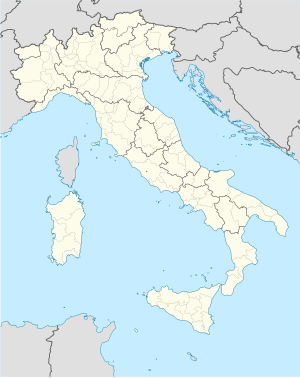The Battle of Fano also known as the Battle of Fanum Fortunae was fought in 271 between the Roman and the Juthungian armies. The Romans led by Emperor Aurelian, were victorious.
Battle during the Roman-Germanic wars (271)| This article includes a list of general references, but it lacks sufficient corresponding inline citations. Please help to improve this article by introducing more precise citations. (August 2024) (Learn how and when to remove this message) |
43°50′00″N 13°01′00″E / 43.833333°N 13.016667°E / 43.833333; 13.016667
| Battle of Fano | |||||||
|---|---|---|---|---|---|---|---|
| Part of the Crisis of the Third Century Juthungian invasions of Italy and Roman–Germanic Wars | |||||||
 | |||||||
| |||||||
| Belligerents | |||||||
| Roman Empire | Juthungi | ||||||
| Commanders and leaders | |||||||
| Emperor Aurelian | Unknown | ||||||
| Battles of Aurelian | |
|---|---|
|
| Rome against the Alemanni and the Juthungi | |
|---|---|
Background
Aurelian had been defeated by the Juthungi at the Battle of Placentia in 271, but he had rallied his men, and started pursuing the Juthungi, who were quickly moving towards a defenceless Rome.
Battle
Finally, the Roman Army caught and forced a fight with the Juthungi on the Metaurus River, just inland of Fano. The crucial moment of the battle was when the Juthungi were pinned against the river, so that, when the Germanic line was forced to give way, many of the Juthungi fell into the river and drowned according to the Romans.
Aftermath
In spite of this and a following defeat in the Battle of Pavia, they remained in existence as an independent tribe until at least the beginning of the 5th century. They besieged and ultimately tore down the very important Roman military camp Castra Regina in 356 or 358AD together with the Alamanni. This is some 80 years after the event of the losses to Aurelian. This camp was one of the biggest in all of Roman-ruled Germania and borderland Gallia. The camp laid at what more or less corresponds to modern day Regensburg in Germany. The Juthungi and Alamanni who had fought alongside them probably settled in the area and became a part of the later Germanic nation of Bavaria.
References
- Michael Grant, The History of Rome, p. 285
Bibliography
- Watson, Alaric (1999). Aurelian and the Third Century. Routledge. p. 50. ISBN 0-415-07248-4.
This article about a battle or war of ancient Roman history is a stub. You can help Misplaced Pages by expanding it. |